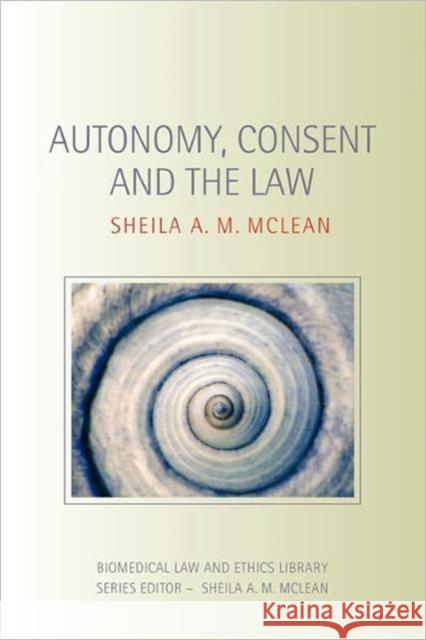Autonomy, Consent and the Law » książka
Autonomy, Consent and the Law
ISBN-13: 9780415473408 / Angielski / Miękka / 2009 / 248 str.
Autonomy, Consent and the Law
ISBN-13: 9780415473408 / Angielski / Miękka / 2009 / 248 str.
(netto: 254,93 VAT: 5%)
Najniższa cena z 30 dni: 246,78
ok. 16-18 dni roboczych.
Darmowa dostawa!
Autonomy is often said to be the dominant ethical principle in modern bioethics, and it is also important in law. Respect for autonomy is said to underpin the law of consent, which is theoretically designed to protect the right of patients to make decisions based on their own values and for their own reasons. The notion that consent underpins beneficent and lawful medical intervention is deeply rooted in the jurisprudence of countries throughout the world. However, Autonomy, Consent and the Law challenges the relationship between consent rules and autonomy, arguing that the very nature of the legal process inhibits its ability to respect autonomy, specifically in cases where patients argue that their ability to act autonomously has been reduced or denied as a result of the withholding of information which they would have wanted to receive. Sheila McLean further argues that the bioethical debate about the true nature of autonomy - while rich and challenging - has had little if any impact on the law. Using the alleged distinction between the individualistic and the relational models of autonomy as a template, the author proposes that, while it might be assumed that the version ostensibly preferred by law - roughly equivalent to the individualistic model - would be transparently and consistently applied, in fact courts have vacillated between the two to achieve policy-based objectives. This is highlighted by examination of four specific areas of the law which most readily lend themselves to consideration of the application of the autonomy principle: namely refusal of life-sustaining treatment and assisted dying, maternal/foetal issues, genetics and transplantation. This book will be of great interest to scholars of medical law and bioethics.
Autonomy is said to be the predominant ethical principle in modern bioethics, and is enshrined in the law. Autonomy underpins the concept of consent which is meant to protect the right of patients to make decisions based on their own perception of what is the ‘right’ decision to make. The notion that consent underpins a good or beneficent medical intervention is deeply rooted in the jurisprudence of most countries throughout the world. Autonomy, Consent and the Law examines these notions in the UK, Australia and the US, and critiques the way in which autonomy and consent are treated in bioethics and law.
The book argues that the debate in bioethics about the true nature of autonomy while rich, has had little if any impact on the law’s development in this area, save arguably in limited circumstances. A second theme will inquire as to whether or not the law’s development has been consistent with the model of autonomy it purports to defend – that is the liberal, self-determination model. This will be done by selecting four areas of the law which most readily lend themselves to consideration of the autonomy principle: refusal of treatment, maternal/foetal issues, genetics and assisted dying.
This book will be of interest to scholars of medical law and bioethics.











